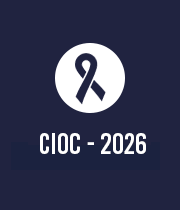Title : Targeting the ribosomes to treat blood cancers
Abstract:
The majority of human tumors are characterized by deregulated signaling through the PI3K/RAS/MYC oncogenic network, leading to an increased rate of ribosome synthesis, mRNA translation and hence protein synthesis. Direct targeting of elevated ribosome biogenesis is becoming a new treatment option for oncogene-driven cancers. We developed the “first-in-class” selective inhibitor of ribosome biogenesis, CX-5461 which inhibits RNA polymerase I transcription of ribosomal RNA (rRNA) genes, the rate-limiting step in ribosome biogenesis. We have demonstrated the remarkable potency of targeting ribosome biogenesis in mouse models of blood cancer. Our first-in-human Phase I trial of CX-5461 in blood cancers demonstrated on-target activity in patients’ samples and a signal for anti-tumor activity in a third of the trial’s participants (6/ 17 patients). CX-5461-mediated alterations in rRNA synthesis and rDNA chromatin and topology subsequently activate two major signaling pathways including p53-dependent nucleolar stress response and a p53-independent nucleolar DNA damage response involving the activation of ATM/ATR kinase. We further demonstrated a marked improvement in the efficacy of CX-5461 in combination with PI3K/AKT/mTORC1 pathway inhibitors in a Myc-driven B-lymphoma mouse model. We show that this improved efficacy is associated with selectively suppression of translation of mRNAs encoding regulators of cellular metabolism. This exciting finding suggests that specific targeting of mRNA translation is a common mode of action of ribosome-targeting therapies for oncogene-driven cancers. Acquired resistance to this co-treatment is driven by translational re-wiring that results in dysregulated cellular metabolism and induction of a cAMP-dependent pathway critical for the survival of blood cancers including lymphoma and acute myeloid leukemia. We also developed a CX-5461 resistant human AML cell model to characterize the molecular changes associated with CX-5461 response using RNA-seq, proteomics, and phosphoproteomics. Integrative analysis of the transcriptomic and proteomic data revealed key mediators and pathways involved in the response and resistance to CX-5461 in AML cells. Targeting aurora kinase A potentiates CX-5461's cytotoxicity in AML cell models. All these findings provide novel understanding and therapeutic approaches to accelerate this new paradigm into the standard-of-care treatment for patients with blood cancer.



